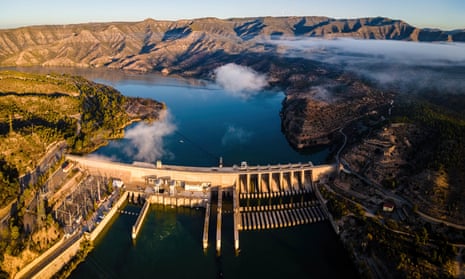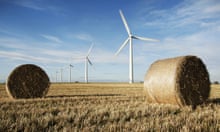Several European countries hit some of their sustainable energy targets for 2030 a decade early, a study has found, but big gaps remain across the board.
All EU member states made progress in the 2010s toward reaching the UN’s seventh sustainable development goal, which calls for access to “affordable, reliable, sustainable and modern energy for all” by 2030. For some indicators, several countries had already reached the targets by 2021, the study by Polish economists published on Wednesday found.
The ranking showed the country closest to the overall goal was Sweden, followed by Denmark, Estonia and Austria. Malta improved the most, with big gains also found in Cyprus, Latvia and Belgium – though these countries all had a long way to go. Bulgaria was furthest from the goal.
The study reveals “systematic progress” towards reaching the goal, the researchers wrote, “with differences between individual EU countries clearly decreasing”.
The economists combined seven metrics to get a single measure of countries’ progress toward the goal. The European Commission has set target values for three of them, while for the rest, the researchers took the level reached by the top 10% of EU countries in 2015 as a proxy.
Several countries had already achieved their targets for 2030 in at least one of the indicators by 2021, the research found.
Spain, Malta and Portugal, for instance, hit the target for the average amount of energy a person consumes in a household. Denmark, Ireland and Luxembourg hit the target for energy productivity, which compares the size of an economy with the energy it consumes.
Sweden, Finland and Latvia beat the target of getting 40% of their final energy consumption from renewables. The researchers attributed this to hydropower dams and burning solid fuels like wood.
Some countries showed surprising results. Belgium ranked worse than Poland, a country that has gained a reputation as a climate laggard. Denmark, meanwhile, was the second-closest to meeting the goal after Sweden but made the least progress in the 2010s of any EU member state.
“It is worth emphasising that progress achieved by particular countries can be more relevant than their final performance outcomes,” the researchers wrote.
after newsletter promotion
In recent years, the EU has sped up its shift from fossil fuels to cleaner sources of energy as part of a bid to reduce its reliance on Russian gas and become the world’s first climate-neutral continent. The EU slashed its gas demand by 18% between August 2022 and December 2023 – saving more than 100bn cubic metres of the fuel – under a plan to roll out renewable energy sources faster and strengthen energy efficiency measures.
The study comes as emergency legislation used to cut gas demand is due to expire. On Wednesday, the European Commission recommended member states take voluntary measures to keep their gas demand down, aiming for a 15% cut from their average level in the five years before Russia’s full-scale invasion of Ukraine.
“Collective reduction of gas use has been a success, and a part of our strategy to tackle the energy crisis,” said Kadri Simson, EU energy commissioner. “Today, the EU is clearly in a better position than two years ago. Still, uncertainties remain, and we need to do more to fully end our gas imports from Russia.”










